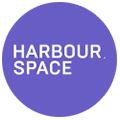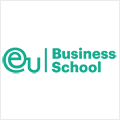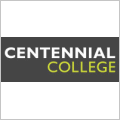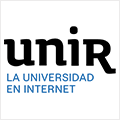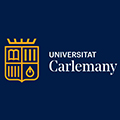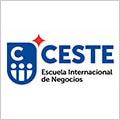-
Imparte:
-
Modalidad:Presencial
-
Precio:International Students: €26,900/year
National Students €13,450/year*
*The National prices apply to Harbour.Space Home Countries Citizens – individuals with valid passports from Spain and Thailand. -
Comienzo:Consultar rellenando el formulario
-
Lugar:Carrer de Rosa Sensat 9-11
Barcelona
España -
Duración:180 ECTS
-
Idioma:El Grado se imparte en Inglés
Presentación
Our Front-end Development programme is where programming and creativity collide to build intricate, inventive and interesting web interfaces by applying animations and motions, and advanced web programming, including JavaScript, WebGL and CSS.
A successful web developer requires more than just coding skills to thrive and innovate in the real world. The Front-End Development programme provides a unique environment for students to explore creative coding based on a strong design foundation.
Over the duration of the three-year programme, there are three levels of achievement. The first is a foundation in programming, interactive web design, and how to approach a career as a designer. In the second year, the core of the programme, students learn and practice popular frameworks such as React and ThreeJS, learning advanced skills that will set them apart professionally. The third year of the programme immerses students in different development challenges and instils familiarity with the concept of "full-stack" development. Students leaving this course will be ready for the competitive market and capable of joining the most creative agencies and startups.
Programa
YEAR 1
The first year of this curriculum gives students a foundational understanding of programming with design in mind, especially interactive programming. Students learn programming languages such as Python and gain practice working with algorithms for problem-solving and history of the web. Interactive design skills and advanced web programming are introduced, including animations and motion on the web, JavaScript, and CSS.
Year one of the curriculum also covers web development´s practical aspects as a career, including practice with web tooling and setup, collaboration, ethics, project management, and English for the industry. This year culminates in the first of three self-initiated personal projects designed to engage creativity and innovation while testing skills learned so far.
Topics
Programming I
Algorithms
History of Web — From Present to Future
Shell Basics and GIT as a Version-Control System
Design I
Programming II
Design II
CSS Foundation
Animations and Motion on the Web
Programming III
Web Tooling and Modern Setup
Effective Teamwork Collaboration
Ethics on the Web
Project Management and Agile Methodologies
English for the Industry
Development as a Job
Personal Project
YEAR 2
Students dive into the core of the programme in year two, with advanced programming courses and an introduction to popular frameworks such as React and ThreeJS. Courses will cover web performance issues that constrain design in the real world, with a deep dive into React, the most popular JavaScript UI framework today.
This year´s course is core and lays a strong foundation in design, with courses on prototyping and user-centered design, 3D modelling and WebGL, and has a more in-depth focus on motion design. A second personal project is completed and presented for critique and debate.
Topics
React Web
Semantics and Accessibility
CSS Applied in Real Projects
RWD
JavaScript Frameworks
Web Performance
React Web II
Prototyping and User-Centered Design
Design III
Introduction to 3D and WebGL
Client Project
Personal Project
YEAR 3
Year three rounds out the programming cycle, with more advanced topics and some back-end immersion. Critical thinking is brought in to discuss design patterns, and more complex skills build around DevOps and mobile-native programming. Year three also covers the emerging technologies of today, including machine learning and WebXR. However, the exact subject matter changes every year, depending on the advancement of technology.
Students also take courses on applied math and physics, WebGL, progressive web apps, and more in the final year. In addition to a third personal project, students complete a client project for real-world practice before embarking on a career as a web developer. By graduation, they´re comfortable with various challenges and agile in their approach to learning new things.
Topics
Design Patterns
Introduction to Backend Programming
Back-End API Development
DevOps
React Native
Introduction to Machine Learning
WebXR
Applied Math and Physics
3D Modelling and WebGL
Progressive WebApps
Client Project
Personal Project
Salidas profesionales
Creative Coder
Junior Front-End Developer
Senior Front-End Developer
UX/UI Engineer
Front-end Team Lead
¡Infórmate ahora sin compromiso!
